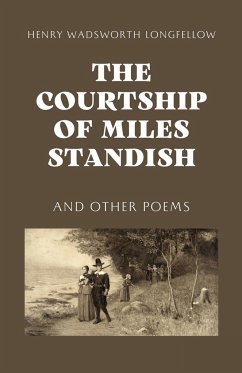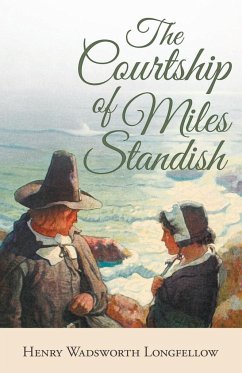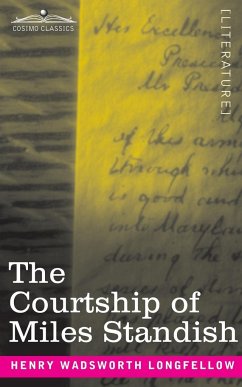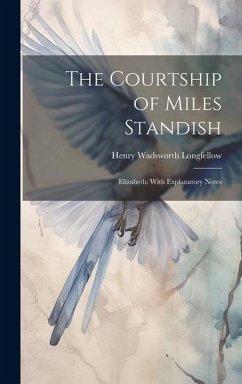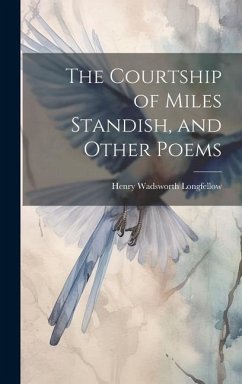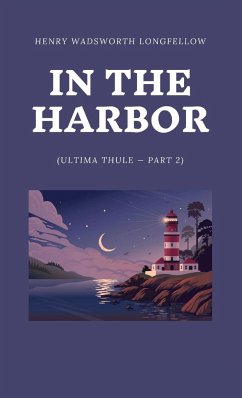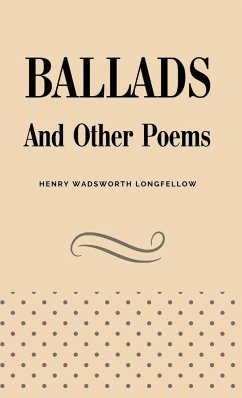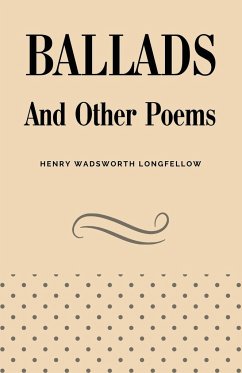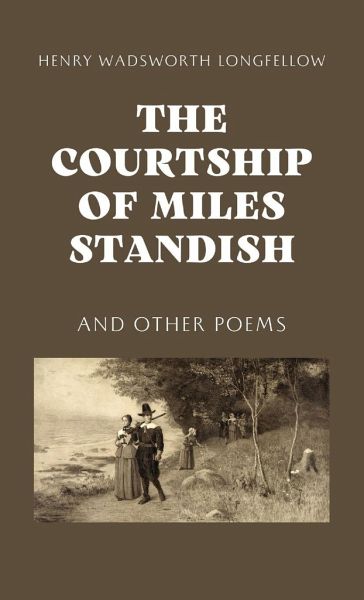
The Courtship of Miles Standish
Versandkostenfrei!
Versandfertig in 1-2 Wochen
16,99 €
inkl. MwSt.

PAYBACK Punkte
8 °P sammeln!
Unique Element About the Author / Historical Context A BELOVED AMERICAN NARRATIVE POEM by HENRY WADSWORTH LONGFELLOW. The Courtship of Miles Standish and Other Poems, by AMERICAN author HENRY WADSWORTH LONGFELLOW (1807-1882) contains the well-known narrative story-poem about the early days of Plymouth Colony, the colonial settlement established in America by the Mayflower pilgrims. The narrative poem is followed by "Birds of Passage," a collection of poems including "The Ladder of St. Augustine," "The Phantom Ship," and "My Lost Youth." Longfellow wrote many lyric poems known for their musical...
Unique Element About the Author / Historical Context A BELOVED AMERICAN NARRATIVE POEM by HENRY WADSWORTH LONGFELLOW. The Courtship of Miles Standish and Other Poems, by AMERICAN author HENRY WADSWORTH LONGFELLOW (1807-1882) contains the well-known narrative story-poem about the early days of Plymouth Colony, the colonial settlement established in America by the Mayflower pilgrims. The narrative poem is followed by "Birds of Passage," a collection of poems including "The Ladder of St. Augustine," "The Phantom Ship," and "My Lost Youth." Longfellow wrote many lyric poems known for their musicality and often presenting stories of mythology and legend. He was among the most popular American poet of his day and had success overseas. Sneak Still the Captain continued, unheeding the words of the stripling: "See, how bright they are burnished, as if in an arsenal hanging; That is because I have done it myself, and not left it to others. Serve yourself, would you be well served, is an excellent adage; So I take care of my arms, as you of your pens and your inkhorn. Title Details Originally published in 1858 American colonial narrative poem set in 1621





